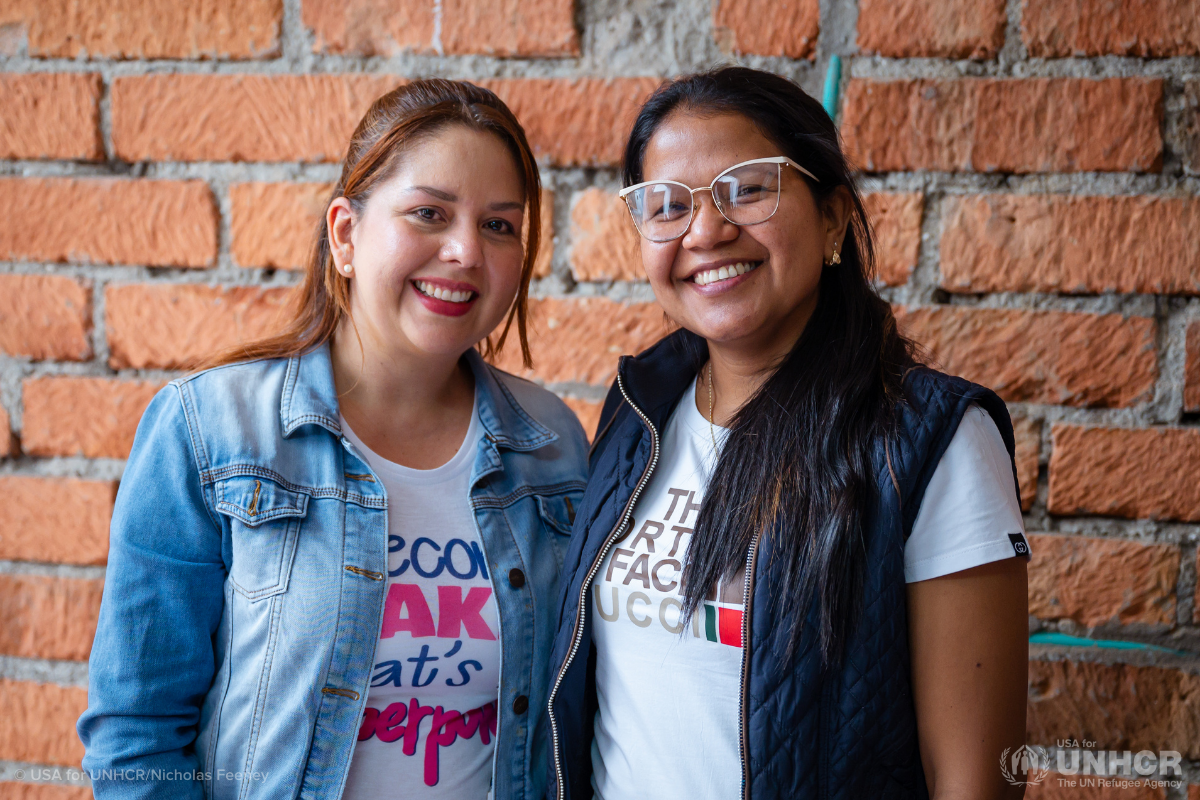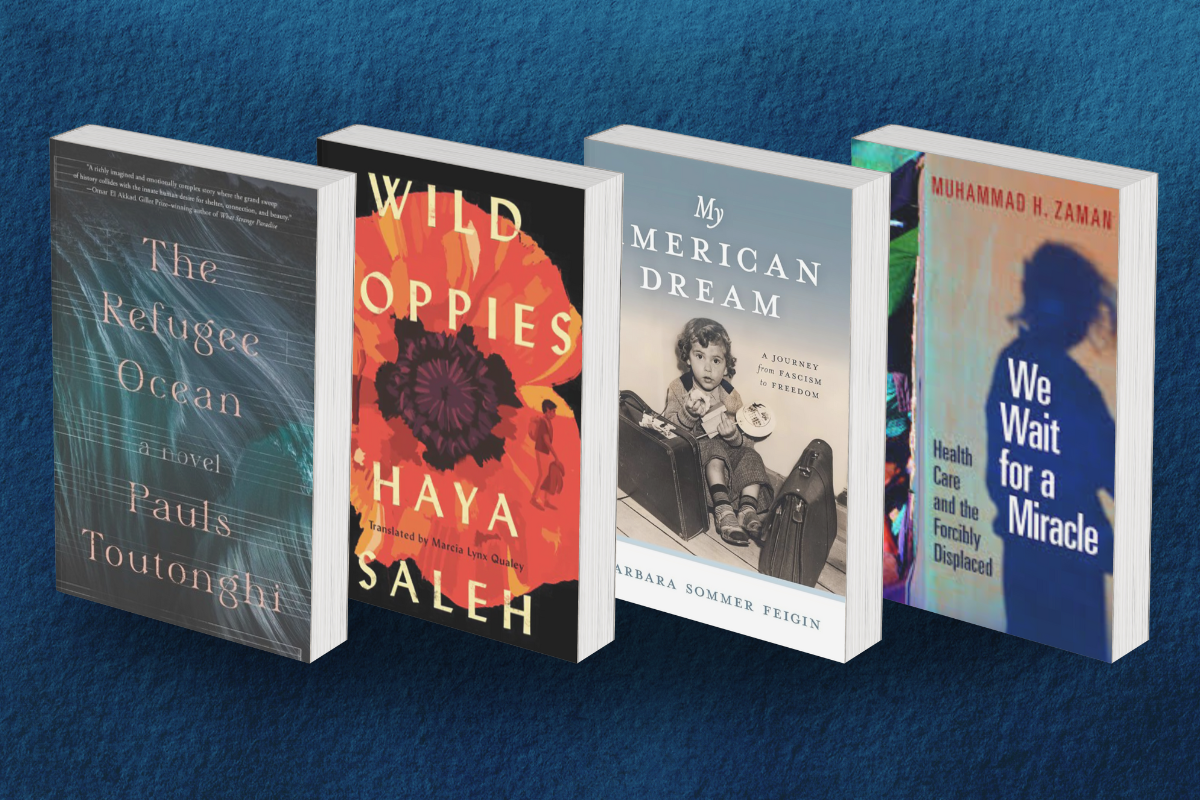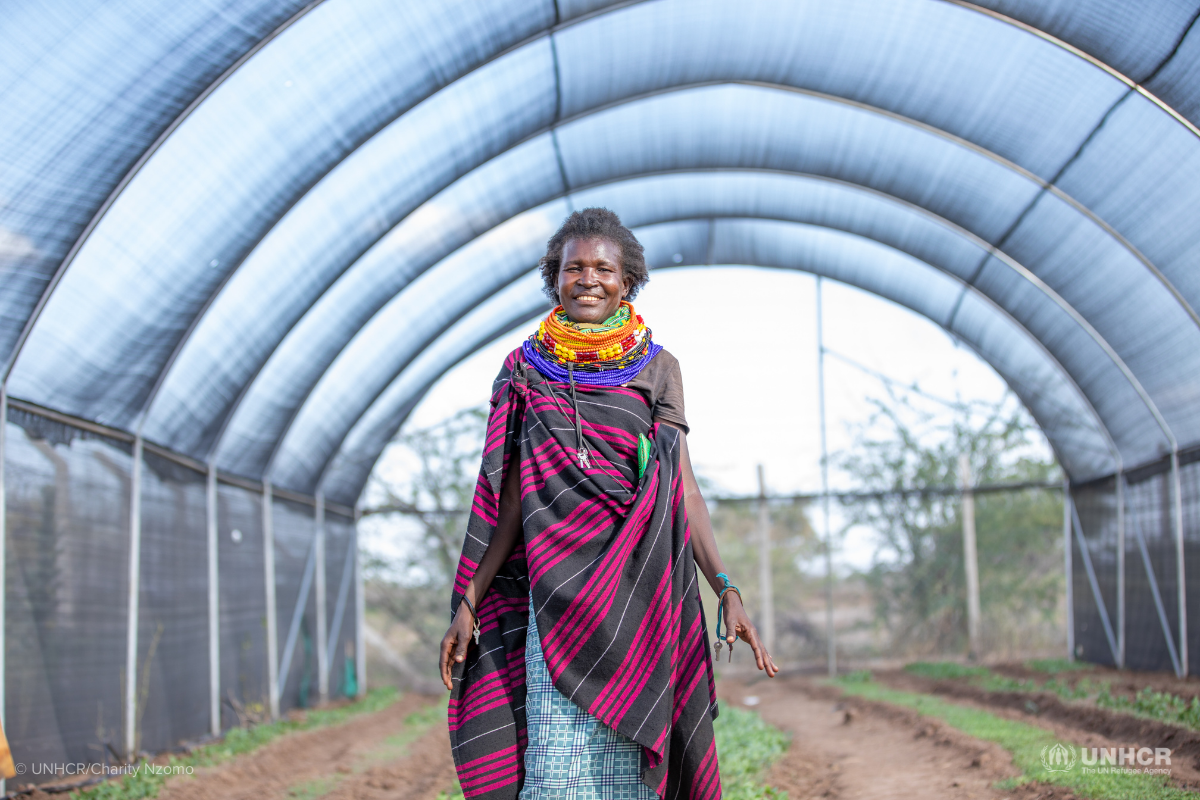World Creativity and Innovation Day: How refugee women use their artisanship to empower and support their families and communities
Women and girls worldwide face a variety of challenges, but for those in especially vulnerable communities, ordinary tasks like collecting water or walking to school can put them in harm's way, with many facing risks of gender-based violence and discrimination.
These risks and challenges are exacerbated for refugee women and girls, who represent an estimated 50 percent of displaced populations. Despite facing adversity, refugee women are often the backbone of their communities, many of whom manage their households, including standing as the primary caregivers and financial providers in their families. However, according to UNHCR, 70 percent of refugees live in countries with restricted access to livelihood opportunities meaning, many refugees struggle to find work.
For refugee women, a source of income not only helps them overcome the trials of displacement, it can also help build the local economies in host communities. It is estimated that refugee women could generate $1.4 trillion toward the annual global GDP if employed and given equal pay in the top 30 refugee-host countries.
Women are proving resilient against employment obstacles, using their craftsmanship, skills and creativity to make ends meet and promote change in their communities.
As we celebrate World Creativity and Innovation Day, we want to share five awe-inspiring women who, with the help of UNHCR programs, are using their artisanship to provide for their families, support their host communities and empower each other.
Amina
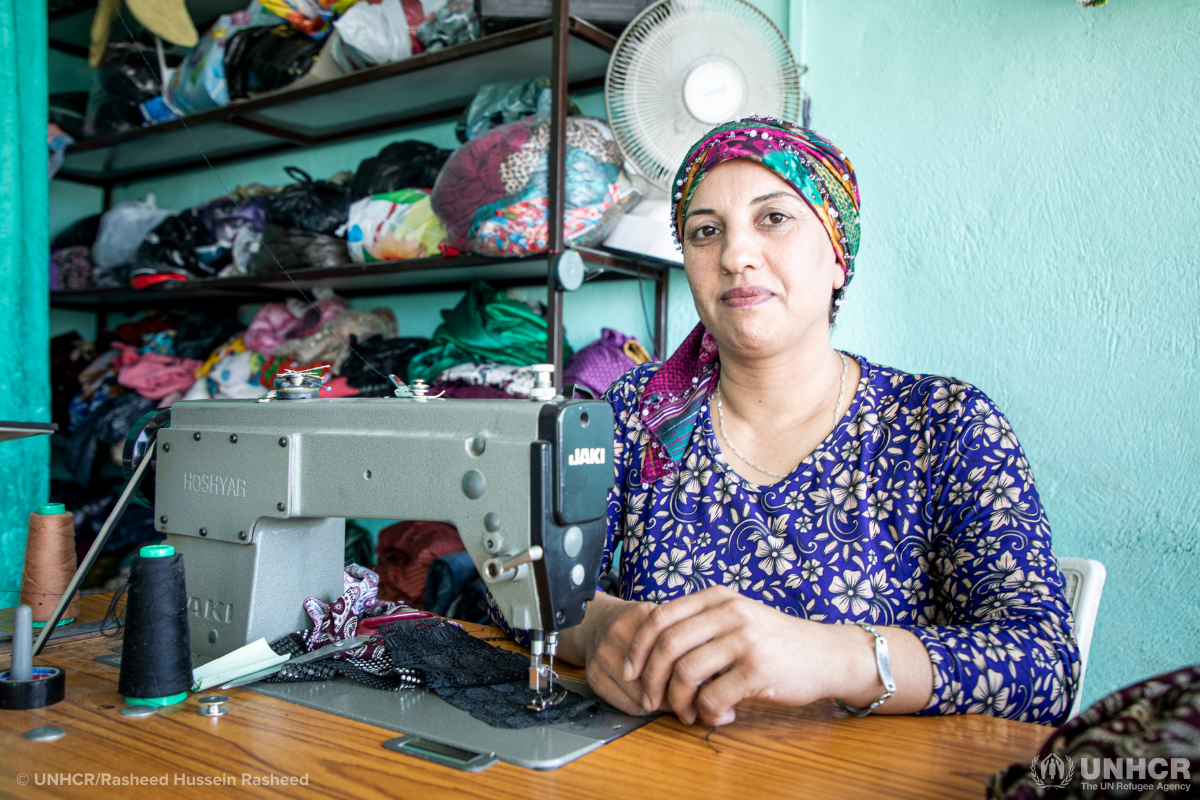
Inside Amina’s brightly lit workshop, customers are first met with colorful fabric samples hanging from the walls and shelves stacked with custom-made garments for clients from as far as Europe. It is easy to forget that her thriving business is located in the middle of a sprawling camp for Syrian refugees in the Kurdistan region of northern Iraq.
Before the conflict in Syria forced her to flee the country, Amina was living with her husband and seven kids in the Syrian capital of Damascus, where she worked as a seamstress.
Now, the widowed mother-of-seven has turned her former pastime into a thriving business and trains other Syrian refugee women and locals to sew, giving them an opportunity to provide for their families.
Tiba
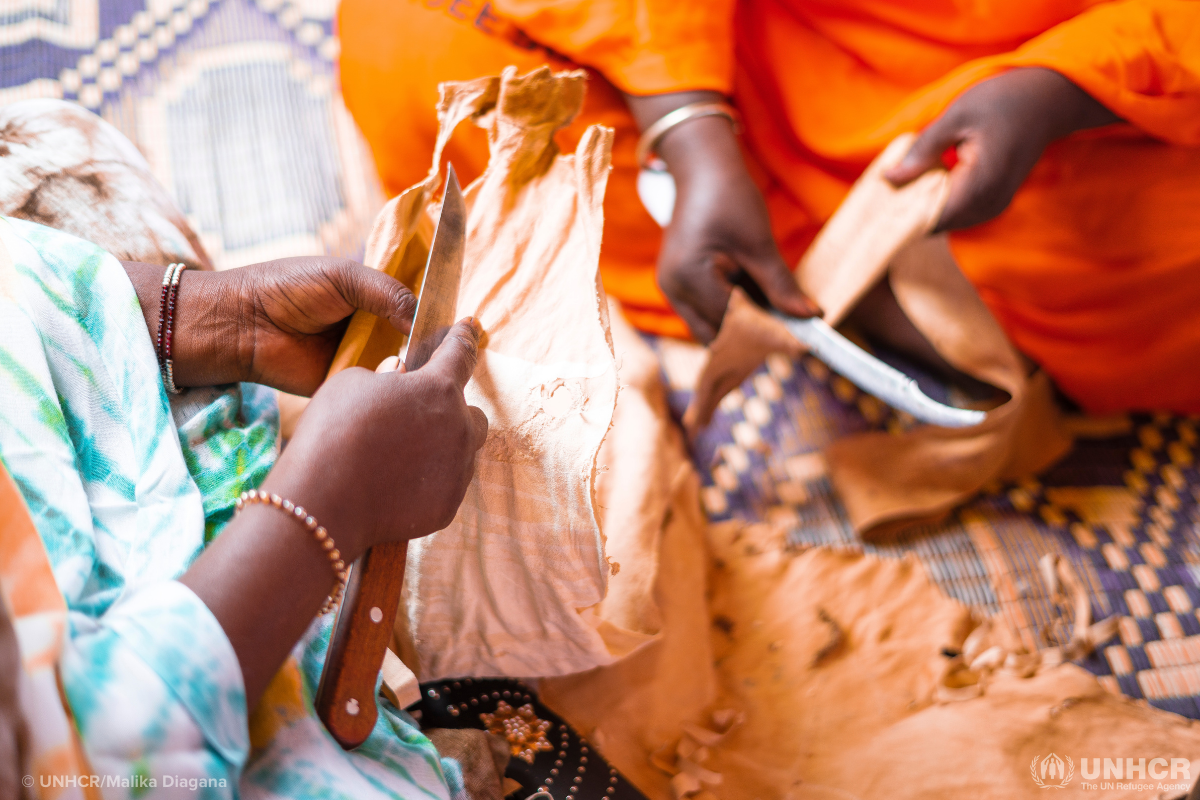
Tiba is a Malian refugee artisan and a female leader in the Mbera camp. She practices leather tanning and crafting in her workshop with her daughter and mother.
For more than four generations, the craft has been passed down from mother to daughter in Tiba's family. From an early age, each daughter sits on their mother's lap to watch the magic of the art unfold.
For Tiba, working is about more than a sustainable income; it's a commitment to women's rights — something she has instilled in her daughter, Teha.
"We are able to buy clothes, meat, milk for our children, and our children can go to school ... and we also buy jewelry for us. Work makes us beautiful," she explains.
Even during her journey to safety, Tiba never stopped working. Thanks to UNHCR and its partners, she grew her business by receiving equipment, training and business management workshops.
Tiba's work has inspired many in her community to work hard to achieve their goals.
"Work enables you to acquire experience and learn. Work is the source of everything,” says Tiba. “Good things will come little by little if you work hard enough," she continues.
Zeinabo
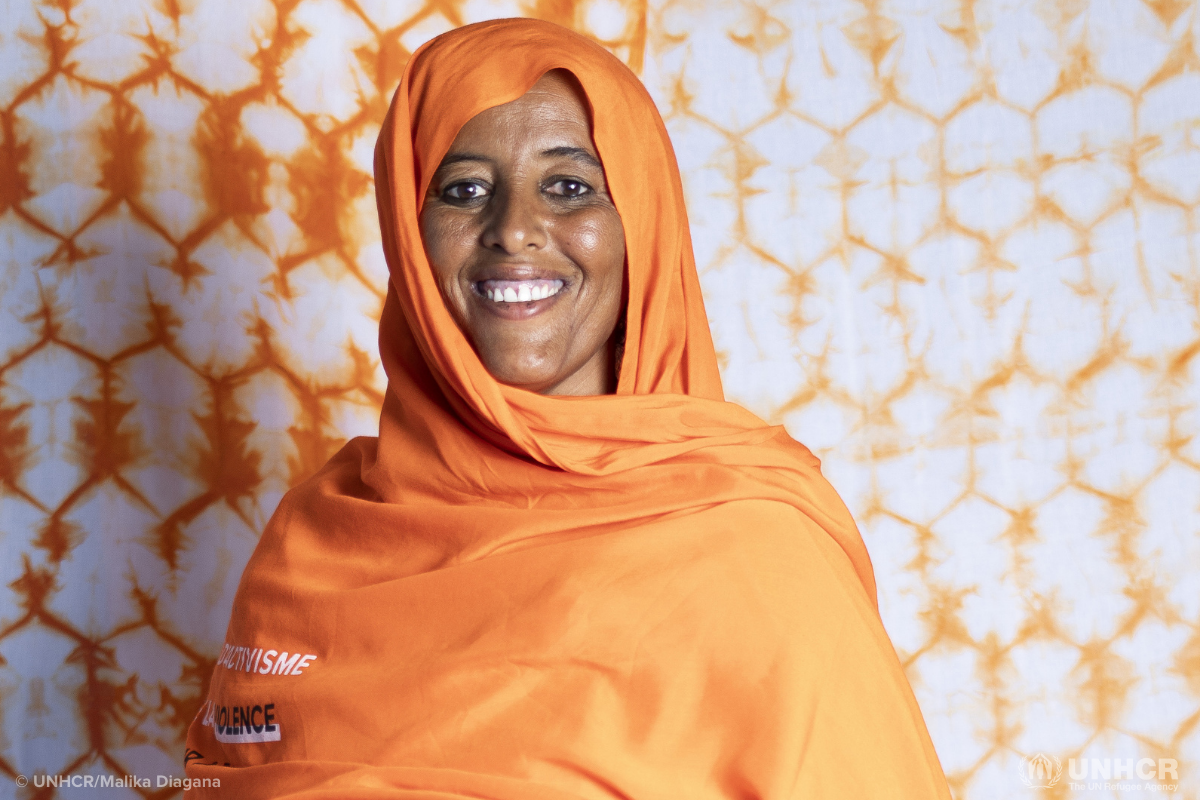
"If you have knowledge, you are richer than if you have money," says Zeinabo, a refugee in the Mbera refugee camp in Mauritania, who, with UNHCR and its partners' support, was able to cultivate her skills in soap making, sewing and fabric dyeing to earn a living.
Zeinabo lives with a disability that impacts her mobility. However, she says, "I compensate for it with my knowledge. It does not prevent me from doing what I want with my life."
Through her positivity and hard work, Zeinabo now serves as a camp leader, elected by the women in her neighborhood. She also provides training for other women, allowing them to use their skills to provide for their families.
Ajowa
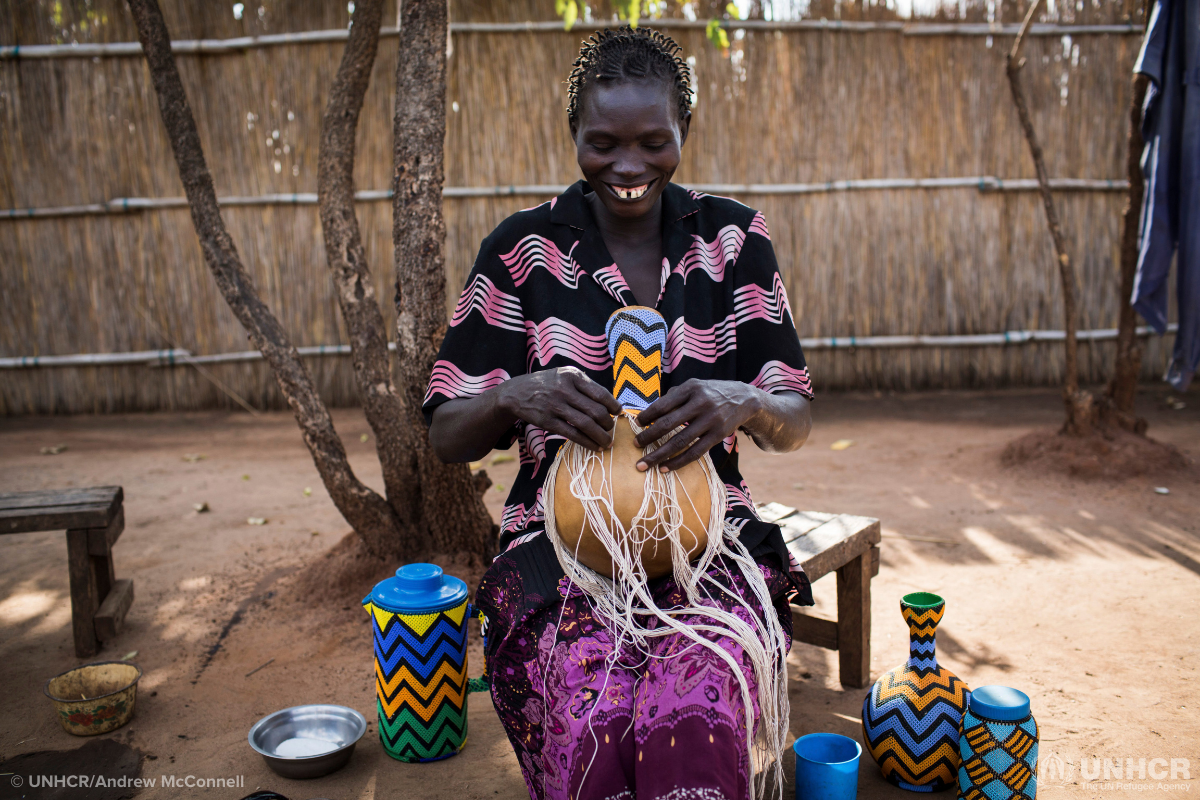
While sitting in the shade outside her temporary home in the Gorom refugee village, Ajowa Ochalla meticulously stitches a bright blue and yellow water container cover.
Despite being forcibly displaced and far from home, the Ethiopian refugee wants to keep the traditions and culture of her people alive.
Ajowa's mother taught her beadwork when she was ten years old, a skill only a few women from her tribe possess.
Across, a UNHCR partner in the village, helps refugees like Ajowa earn an income to supplement cash assistance, giving women the opportunity to use their skills and keep their culture alive all while providing for their families.
Fatouma and Adizata
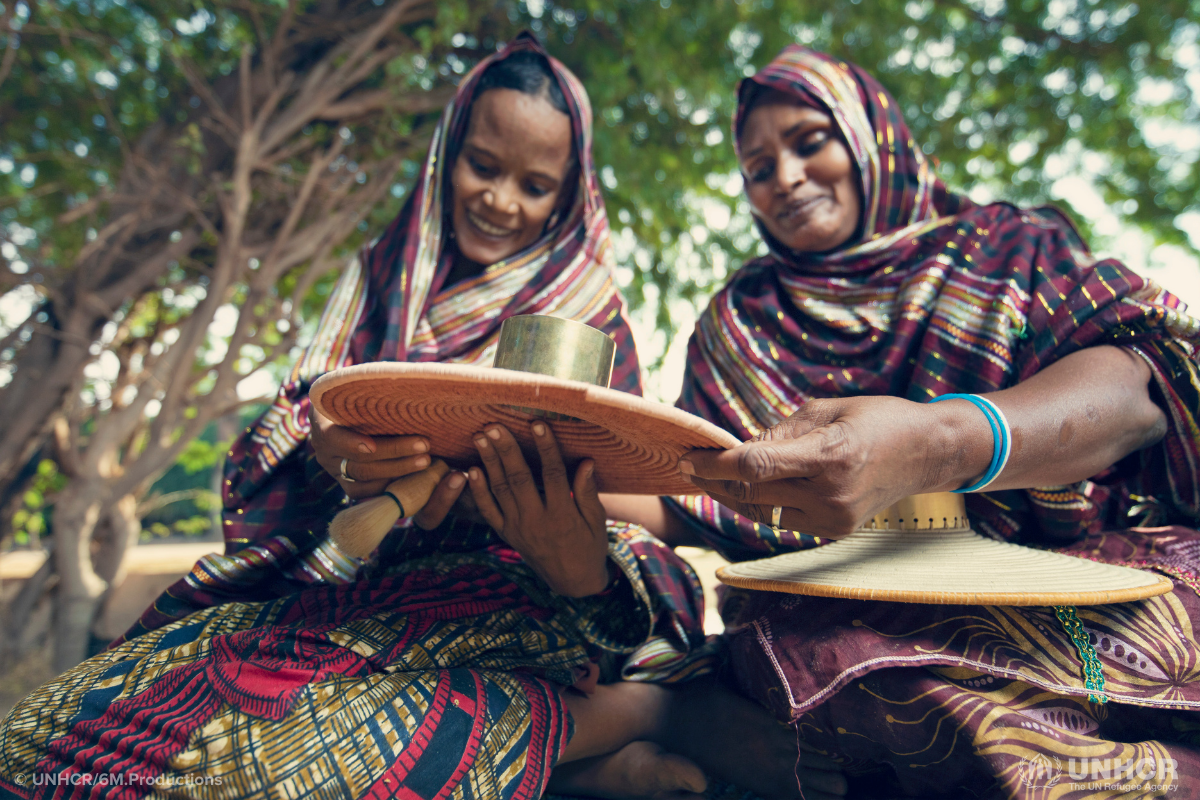
In Burkina Faso, a UNHCR-supported workshop, AAKS Weaving for Change, brings together the heritage and unique weaving skills of Tuareg refugee women, like Fatouma and Adizata.
Fatouma (pictured above, left) is from the Gossi region of Mali, but in 2013, she and her family fled the country due to violence in the region. They found refuge in Burkina Faso, and today, this mother of five is the chair of the Association of Weavers at the artisanal center in the Goudebou camp.
This talented weaver has trained her daughter in the craft of basket weaving, just as her mother did for her when she was the same age. Now, Fatouma and her children have joined the AAKS Weaving for Change project, the workshop gives refugees the opportunity to improve their technical and entrepreneurial skills with the hope that their products can be exported to international markets.
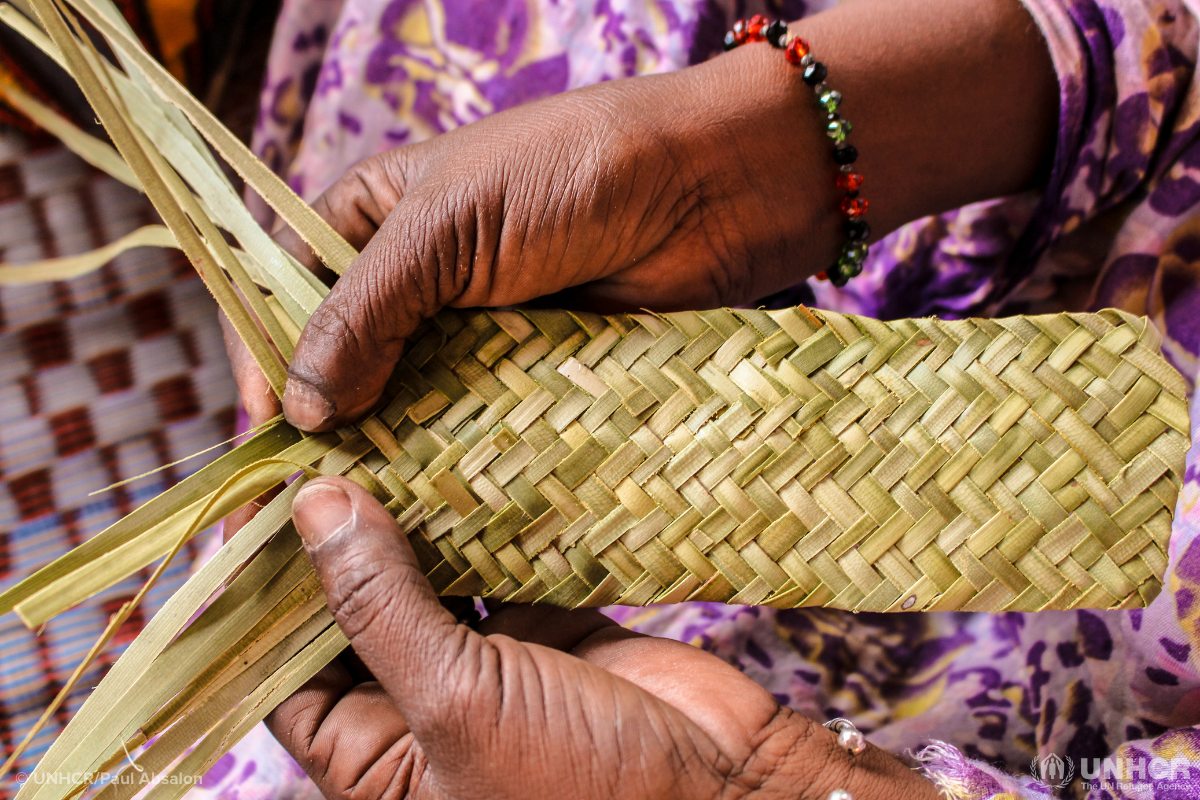
UNHCR is committed to protecting the rights of women and girls and has partnered with many organizations to ensure that women's needs are met at every step of their journey to safety.
By empowering women with economic opportunities, and providing skills training, equipment and business management coaching, UNHCR is helping refugee women build safer, more stable futures. Through programs like Made51 and the AAKS Weaving Project, refugee women are participating in the global economy, harnessing their skills and keeping their traditions alive.
Here's how to help…
By becoming a donor, you can help UNHCR continue to fund and develop programs to help artisan women utilize their skills, earn a living, support their community and empower one another.
